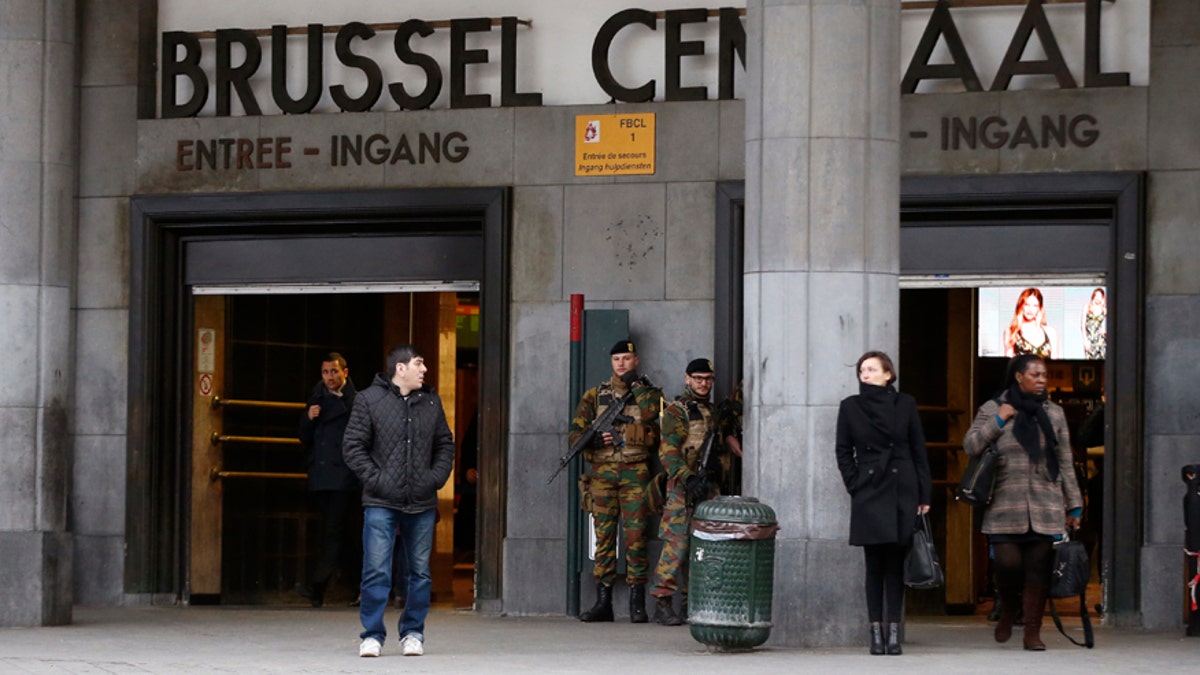
Commuters walk past soldiers on duty at Brussels Central Station as they return to work after the easter holidays in Brussels, Tuesday, March, 29, 2016. The mayor of Brussels, holding special meetings in Paris after deadly attacks on his city, says the European Union's capital can never go back to "normal" again. Yvan Mayeur met with Paris Mayor Anne Hidalgo in the French capital's neo-Renaissance city hall Tuesday for discussions on how Paris reacted to the November attacks.(AP Photo/Alastair Grant)
Belgian authorities plan to expand their intensified law-enforcement efforts beyond Molenbeek, the Brussels neighborhood that was home to several suicide bombers, said officials, who also publicly detailed steps taken in recent months to curb terror threats.
The “Canal Plan”—so called because a canal separates Molenbeek from the center of Brussels—was implemented in February after the November terrorist attacks in Paris revealed that several of the Islamic State fighters had grown up in the Brussels neighborhood. Some left for Syria and came back undetected by using fake documents provided by friends who stayed in Molenbeek.
The Canal Plan was gradually rolled out just weeks before the March Brussels bombings, which killed 32 people.
As part of the plan, an additional 50 police officers were deployed in Molenbeek and a joint task force focusing on suspected foreign fighters was established, officials said on Thursday. The task force has been examining whether the suspects receive welfare benefits and what links they may have to criminal networks supplying weapons and false documents.
The Molenbeek initiative has proven successful in getting the police, welfare offices and financial-investigation units to cooperate on specific terrorism cases, Belgian Interior Minister Jan Jambon said at a news conference presenting the results of Canal Plan.
In the aftermath of the Paris attacks, Mr. Jambon had announced a bolder plan, aimed at checking every address in Molenbeek and investigating which residents had traveled back and forth to Syria.
But political quarrels and financial constraints slimmed down the plan to 50 extra officers, down from the 126 officers the Molenbeek police chief had requested.
